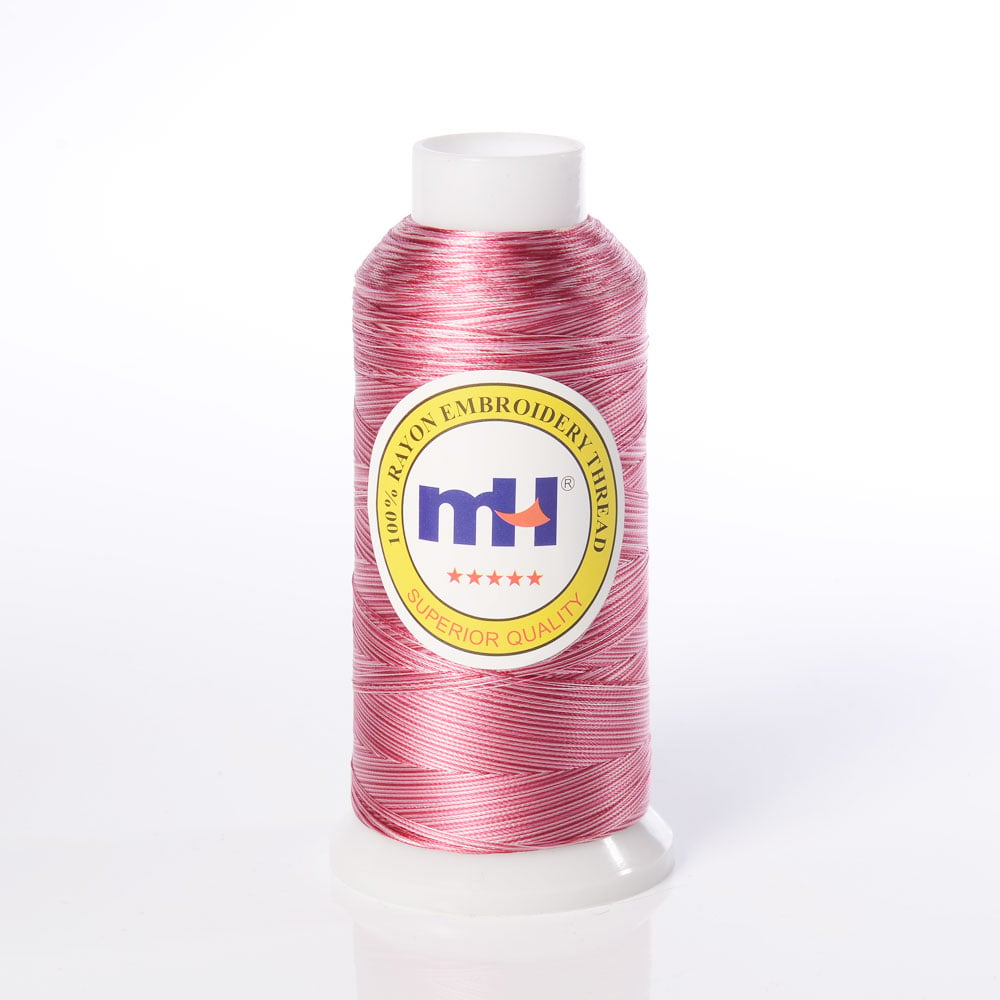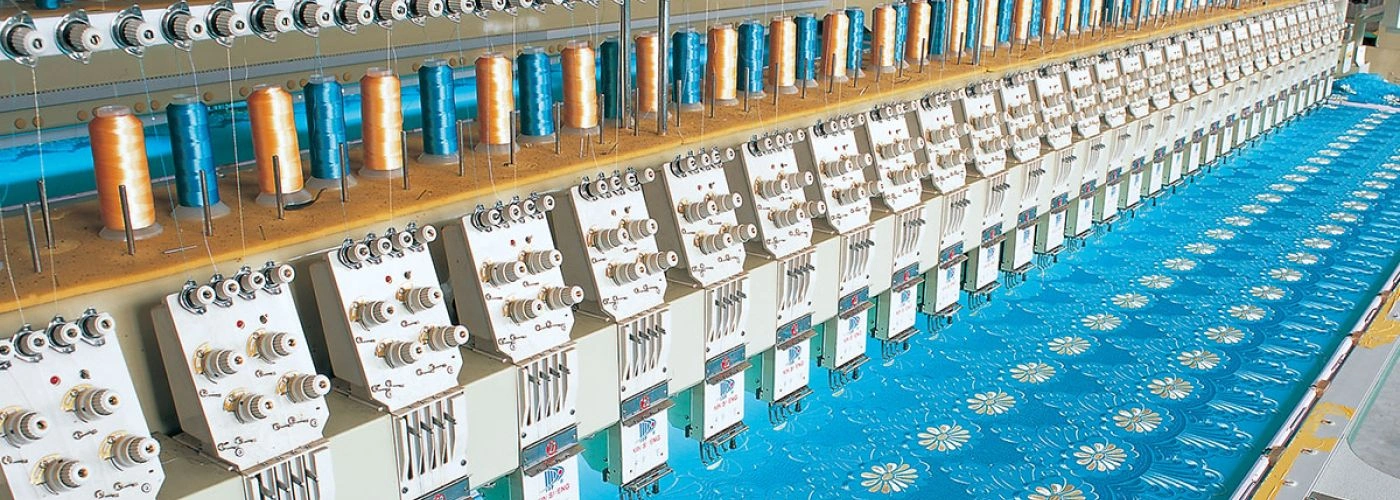
Thread for Machine Embroidery: The Complete Guide for Professionals
Introduction
In the world of machine embroidery, the choice of thread directly impacts the quality of every design. The right thread for machine embroidery doesn’t just add color; it ensures durability, smooth stitching, and professional results. For garment manufacturers, wholesalers, and fashion brands, selecting the best embroidery thread is the key to producing embroidery that lasts and stands out.
Why the Right Embroidery Thread Matters
Using premium machine embroidery thread guarantees:
-
Smooth machine performance – fewer breaks and less downtime.
-
Brilliant colors – ensuring every pattern remains vivid.
-
Strength and durability – embroidery that withstands wear and washing.
-
Consistent results – perfect for large-scale production.
Whether you’re working on uniforms, fashion apparel, or decorative stitching, the right embroidery thread elevates both quality and efficiency.
Professionals trust high-quality machine embroidery thread to deliver consistent, professional results in every project.
Introduction to Embroidery
Embroidery is a timeless craft that has evolved from intricate hand-stitched patterns to the precision and speed of modern machine embroidery. At its core, embroidery is about enhancing fabric with decorative designs using thread, transforming ordinary textiles into works of art. Today, machine embroidery allows professionals to create detailed, consistent, and vibrant patterns on a wide range of materials, making it an essential technique in the fashion, home décor, and accessories industries.
The foundation of any successful embroidery project lies in the choice of embroidery thread. The right machine embroidery thread not only brings your designs to life with rich color and texture but also ensures that each piece stands the test of time. Whether you’re looking to add a subtle accent or make a bold statement, selecting the appropriate thread is key to achieving the desired effect. By understanding the basics of embroidery and the critical role thread plays, you can create stunning, personalized designs that elevate garments, décor, and more.
Main Types of Embroidery Threads for Machines
1. Polyester Thread
-
High tensile strength and excellent resistance to fading.
-
Perfect for sportswear, uniforms, and outdoor clothing.
-
The most widely used machine embroidery thread due to durability.
2. Rayon Thread
-
Renowned for its natural sheen and softness.
-
Creates luxurious embroidery effects on fashion garments.
-
Often chosen when smooth texture and glossy finish are essential.
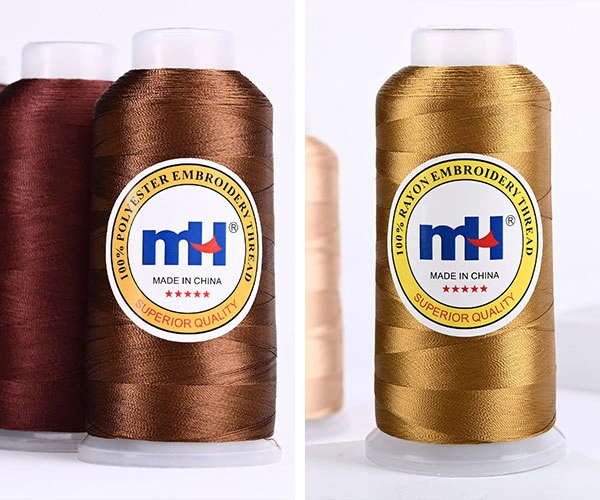
3. Specialty Threads
Ideal for brands seeking unique and standout embroidery.
Metallic threads add elegance and luxury.
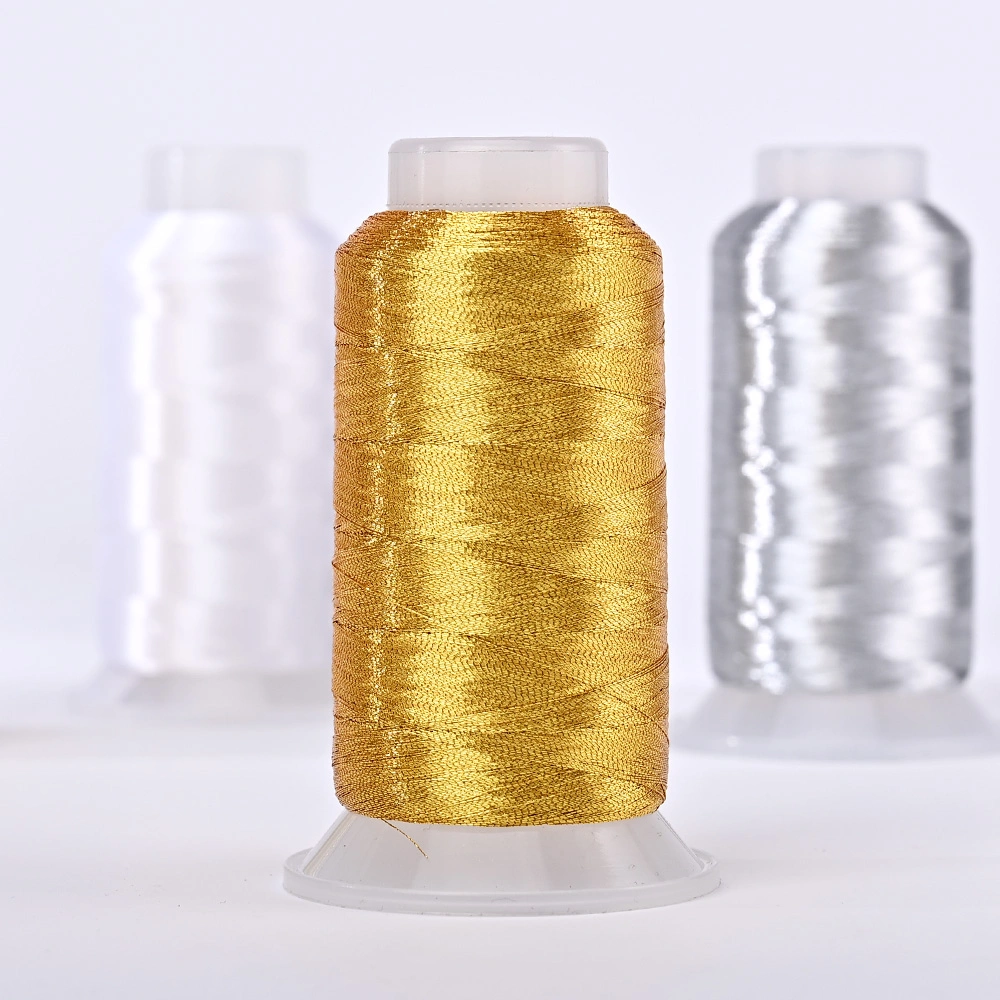
Multicolor threads enable creative effects.
Glow-in-the-dark threads enable creative effects.
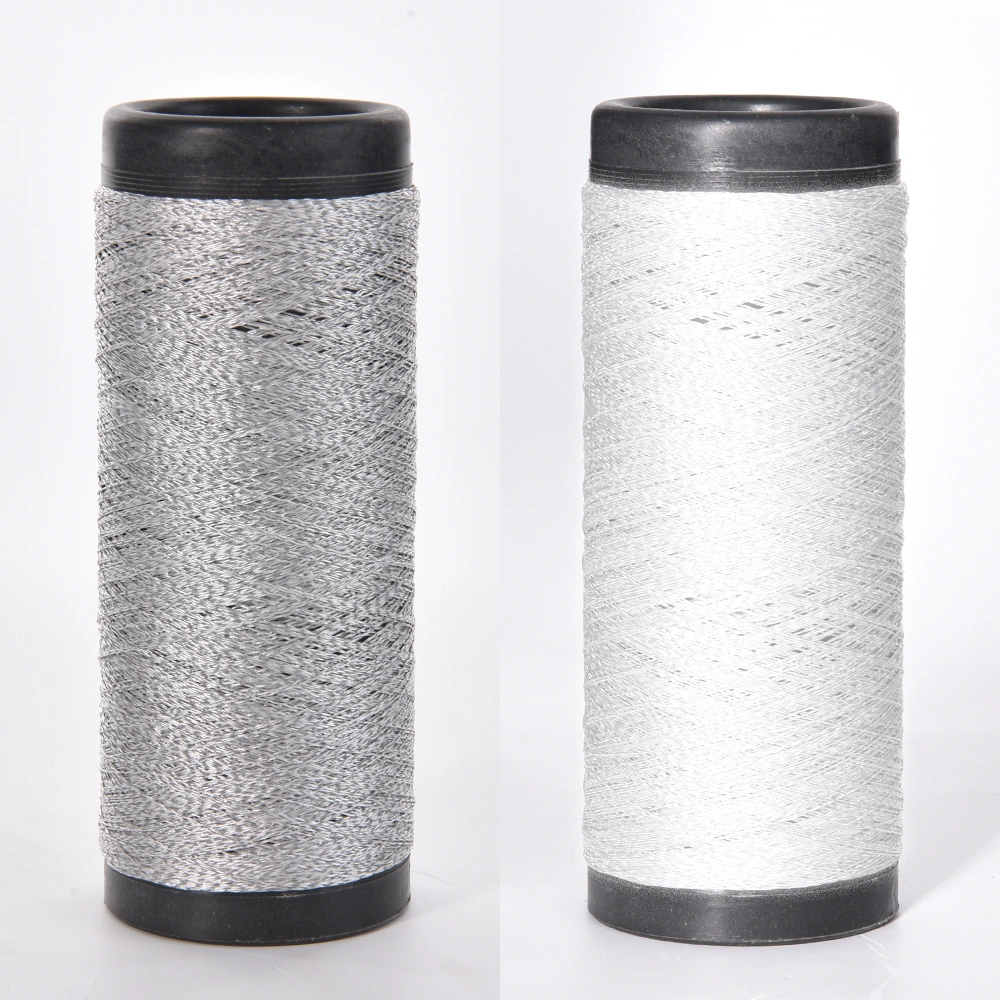
Characteristics of High-Quality Machine Embroidery Thread
When it comes to achieving flawless results in machine embroidery, the quality of your embroidery thread is paramount. High-quality threads, such as polyester thread and rayon thread, are designed to deliver both durability and vibrant, lasting colors that make every design stand out. The ideal embroidery thread boasts excellent colorfastness, ensuring that your finished pieces resist fading or bleeding even after repeated washing. A smooth, consistent texture allows for easy stitching, reducing the risk of snags and ensuring a professional finish.
Thread weight is an important characteristic, as it determines the thickness of the thread and influences the final appearance and texture of the embroidery.
Another hallmark of superior thread is its resistance to breakage and fraying, which means fewer interruptions and more efficient production runs. The finish of the thread—whether you prefer a subtle matte or a high-gloss shine—should complement the style and design of your embroidery, adding to the overall visual appeal. For professionals who demand reliability, trusting established brands like Madeira or Isacord ensures that every spool meets the highest standards, making your machine embroidery projects not only beautiful but also built to last.
Choosing the Right Machine Embroidery Thread
Selecting the perfect machine embroidery thread is a crucial step in ensuring your projects look professional and last for years. With so many options available, it’s important to match your thread choice to the specific needs of your design and fabric. Polyester thread is a top pick for many professionals, thanks to its impressive strength, durability, and resistance to fading—making it ideal for items that will see frequent use or washing. Rayon thread, with its beautiful sheen and smooth finish, is perfect for adding a touch of elegance to decorative stitching and intricate designs.
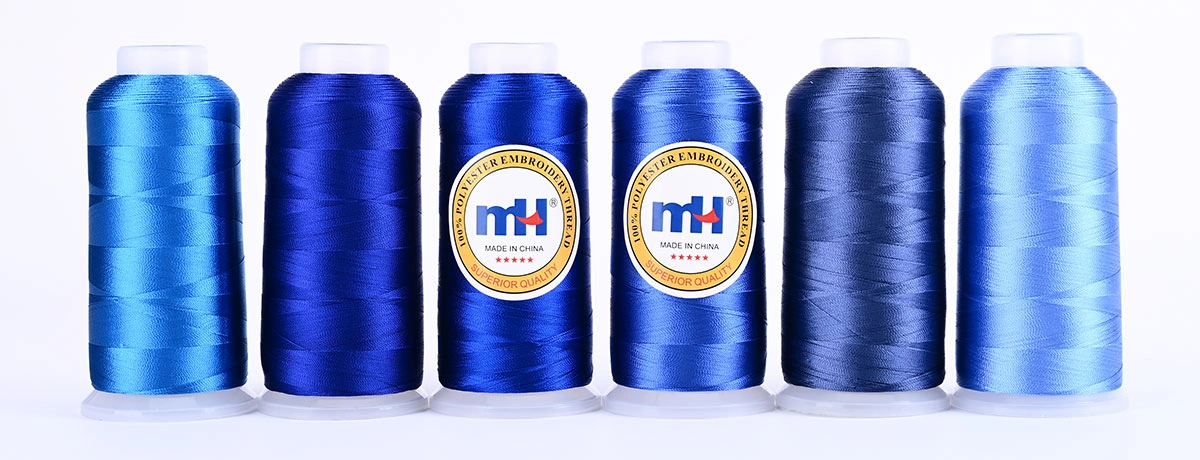
Beyond polyester and rayon, cotton thread offers a classic, matte appearance that suits traditional or vintage-inspired embroidery, while silk thread brings a luxurious feel and subtle luster to high-end projects. When choosing your embroidery thread, consider the weight and texture of your fabric, the complexity of your design, and the color palette you want to achieve. Checking the original price and current stock can help you plan your purchases efficiently and save on costs, especially when working on large-scale or repeat orders.
Trusting established brands and paying attention to thread quality, colorfastness, and texture will help you add your unique style to every project. By making informed choices, you ensure that your embroidery not only looks perfect but also stands up to the demands of daily life, allowing your designs to shine in any application.
Who Benefits Most from Machine Embroidery Threads?
-
Garment Manufacturers – who need consistency and bulk production capacity.
-
Fashion Brands – that want trendy, high-shine embroidery details.
-
Wholesalers & Distributors – supplying local embroidery materials markets.
-
Keeping embroidery threads in stock is essential for meeting market demand quickly.
-
-
Sportswear and Workwear Producers – requiring strong polyester thread for tough conditions.
Tips for Working with Embroidery Thread
To get the most out of your machine embroidery projects, it’s essential to match your thread choices to the specific needs of your designs and fabrics. Start by selecting the right thread weight for your project, taking into account the type of fabric and the complexity of the embroidery. Choosing the appropriate spool size for your project can help minimize thread waste and ensure smooth machine operation. Testing your chosen threads on fabric swatches before beginning a full project can reveal how the colors will appear when stitched and how they’ll hold up to washing and exposure to light—helping you save time and avoid costly mistakes.
Maintaining a sample book or swatch chart of successful thread and fabric combinations is a smart way to replicate your best results and streamline future projects. Regular cleaning and maintenance of your embroidery machine, paired with the use of high-quality threads, will minimize thread breakage and keep your workflow smooth. For delicate fabrics, consider using rayon or silk threads, which offer a softer, more flexible touch—ideal for intricate designs and decorative stitching that require a gentle finish. By following these tips, you’ll ensure that every embroidery project achieves the perfect balance of color, texture, and durability.
Applications of Machine Embroidery
Machine embroidery opens up a world of creative and commercial possibilities, making it a go-to technique for everything from fashion and accessories to home décor. With the right machine embroidery thread, you can add personalized touches to garments, create unique gifts, or produce professional-quality products for retail. The wide range of available thread colors, finishes, and specialty options—such as metallic or neon—allows you to add eye-catching details and bring your designs to life.
Whether you’re crafting custom logos, monograms, or intricate patterns, machine embroidery is perfect for adding a polished, high-end look to any project. The versatility of embroidery thread means you can experiment with different applications, from quilting and sewing to embellishing interior design pieces. With a well-stocked selection of threads and a reliable machine, the only limit is your imagination—making machine embroidery an ideal choice for both creative expression and commercial success.
Why Choose MH for Embroidery Threads?
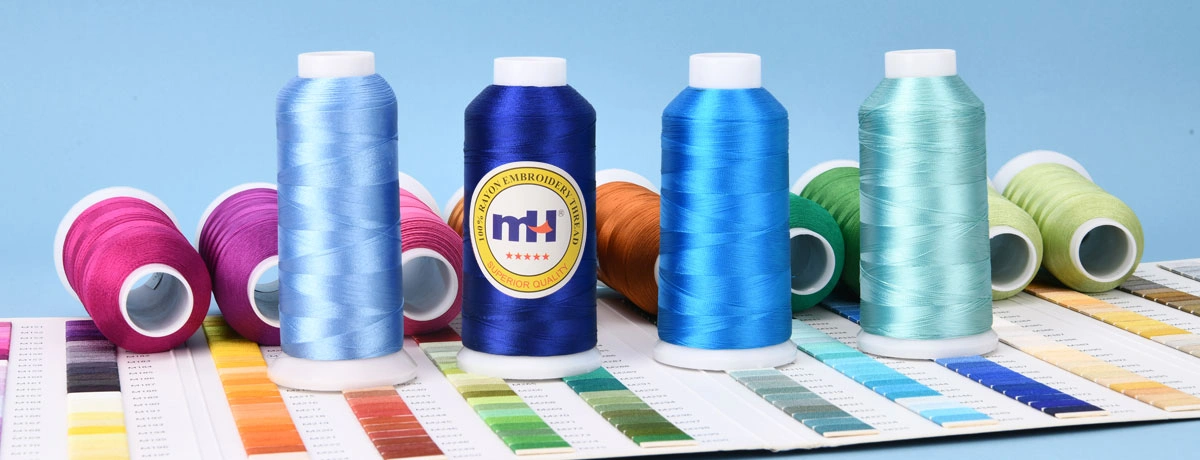
1. Wide Product Range MH offers all types of embroidery thread: polyester thread, rayon thread, metallic, and special-effect threads, meeting every machine embroidery demand.
2. Industrial Capacity
-
35,000 tons of sewing thread annually.
-
3,500 tons of embroidery thread capacity.
-
Ensures stable supply for global customers.
3. Global Reach Serving buyers in 150+ countries, MH is a trusted name in machine embroidery thread supply.
4. Guaranteed Quality Advanced dyeing technology and strict QC deliver embroidery thread with consistent color, smooth runability, and excellent strength.
5. Professional Service MH’s sales team provides customized solutions, ensuring that every customer—from large factories to regional wholesalers—finds the perfect thread for their embroidery business. MH offers competitive pricing, and customers can view the original price alongside current offers to clearly see the value and savings available.
Conclusion
In today’s competitive textile industry, investing in the right thread for machine embroidery is essential. Whether it’s durable polyester thread, glossy rayon thread, or specialty designs, MH ensures the perfect balance of quality, variety, and supply capacity. With MH as your partner, every machine embroidery project becomes a success.
 Whatsapp:
Whatsapp: 